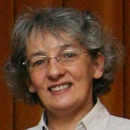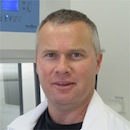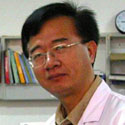Academic Editors
The following people constitute the Editorial Board of Academic Editors for PeerJ. These active academics are the Editors who seek peer reviewers, evaluate their responses, and make editorial decisions on each submission to the journal. Learn more about becoming an Editor.

Jacyra Soares
Degree in Meteorology from University of São Paulo (1983), Master in Oceanography (Physical Oceanography) from University of São Paulo (1989) and PhD from University of Southampton, England (1994). In 1995 held postdoctoral activities in the Oceanographic Institute at USP. Experience in Physical Oceanography and Meteorology, with emphasis on numerical modelling and in situ observations of air-sea interaction (oceanic and atmospheric turbulence) and micrometeorology (Planetary boundary layer, turbulence, radiation and energy balances, turbulent fluxes). Study of the atmosphere and ocean in Equatorial and Antarctic regions.

Paula Soares
Professor of Biopathology at Medical Faculty of the University of Porto and coordinator of Cancer Signaling and Metabolism research group at IPATIMUP/I3S.

Mansour Sobeh
Mansour Sobeh holds a B.Sc. in Chemistry from Ain Shams University, Egypt, an M.Sc. in Analytical Chemistry from the German University in Cairo, Egypt, and a Ph.D. in Natural Sciences (Dr. rer. nat.) from Heidelberg University, Germany. He is currently an Assistant Professor at Mohammed VI Polytechnic University

Mar Sobral
Spanish Evolutionary Ecologist. Formerly at Stanford (US) and CNRS (France). Now at USC (Spain).
My research looks at the evolutionary ecology of plant-animal interactions and the impact of global change on biodiversity, particularly regarding ecosystem functions and services such as carbon storage.

Adriano Sofo
Adriano Sofo graduated with a Master Degree in Biological Sciences from the University of Bari, Italy, in 1997. He spent three years (1999-2002) at the University of Basilicata, Italy, with a Doctorate in Crop Productivity. From 2000 to 2001, he also was Researcher at the National Agency for New Technologies, Energy and Sustainable Economic Development (ENEA), Italy. As Postdoctoral Training, in 2002, he worked at the Institute of Molecular Biology and Biotechnology, Heraklion, Greece, within a Marie Curie Fellowship. In 2007, he graduated with a second Master Degree in Plant Biotechnology from the University of Basilicata. He then trained for four years as a Postdoctoral Fellow at the University of Basilicata, where he also worked as Assistant Professor in Agricultural Chemistry. In 2015, he was awarded with a Fulbright Research Scholar grant to spend at the University of California, Davis. In 2017, he received a fellowship award from the OECD's Co-operative Research Programme at the University of Waikato, New Zealand.

Youba Sokona
Prof. Sokona is currently Special Advisor for Sustainable Development at the South Centre. With over 35 years of experience addressing energy, environment and sustainable development in Africa. Reflecting his status, Prof. Sokona was elected Vice-Chair of the Intergovernmental Panel on Climate Change (IPCC) in October 2015. Prior to this, Prof. Sokona was Co-Chair of IPCC Working Group III on the mitigation of climate change for the Fifth Assessment Report after serving as a Lead Author since 1990. In addition to these achievements, Prof. Sokona has a proven track record of organisational leadership and management, for example, leading the conception, development and initiating the Africa Renewable Energy Initiative, as the first Coordinator of the African Climate Policy Centre (ACPC) and as Executive Secretary of the Sahara and the Sahel Observatory (OSS). Prof. Sokona’s advice is highly sought after, and as such, he is affiliated with numerous boards and organisations, including the Board for the Institute of Development Studies (IDS), Honorary Professor at the University College London (UCL), Member of Science Advisory Committee of the International Institute for Applied Systems Analysis (IIASA), and as a Special Advisor to the African Energy Leaders Group. In short, Prof. Sokona is a global figure, with deep technical knowledge, extensive policy experience and an unreserved personal commitment to African led development.

Peter S. Solomon
Professor, Wheat Biosecurity. Australian Research Council Future Fellow, Research School of Biology, The Australian National University. Associate Editor of Functional Plant Biology

Kumaravel Somasundaram
Kumar Somasundaram is a Professor at Department of Microbiology Cell Biology, Indian Institute of Science, Bangalore, India. He obtained his Veterinary Medicine degree (1985) from Madras Veterinary College, Masters in Biotechnology (1987) and Ph.D. in bacterial genetics (1993) from Madurai Kamaraj University, Madurai, India. Subsequently, he did his post-doctoral training at Northwestern University and University of Pennsylvania in Cancer Biology before moving to Indian Institute of Science (1999) as a faculty. The major focus of his laboratory is genetics of glioma, the most common primary adult cancer

Young-Chae Song
Professor, Department of environmental engineering, Korea Maritime and Ocean University.
Research fields include anaerobic digestion for organic waste, bioelectrochemical technology and management of coastal environment.

Haijun Song
Dr. Haijun Song is currently a professor of Paleontology and Geobiology in China University of Geosciences. He obtained bachelor and Ph.D in Paleontology from China University of Geosciences (Wuhan). He was a Marie Curie Fellow in the University of Leeds. His main research interests include mass extinction events, macroevolution, paleodiversity and paleoenvironment changes, geobiology database, and AI applications in paleontology. He has served as the chief scientist of several national projects and has published more than 70 peer-reviewed scientific papers. He has been actively involved in the International Geological Correlation Programme (IGCP 572, 630).

Jian Song
Since 2016 Dr. Jian Song has been Priv.-Doz of Experimental Immunology within the Institute of Physiological Chemistry and Pathobiochemsitry at the University of Münster, Germany. He received his PhD of Molecular Medicine from Cologne University, Germany.
Dr. Song's research interests include investigating the role of basement membranes and matrix metalloproteinases in leukocyte extravasation into the brain and into the tumour microenvironment using intravital imaging and scRNA technology

Linsheng Song
Professor of Marine Biology and Vice President of Dalian Ocean University. Member of council of the Chinese Society of Malacology, fellow of the Chinese Society for Oceanology and Limnology. Editorial Board Member of Fish & Shellfish Immnology, Developmental and Comparative Immunology, Scientific Report.

